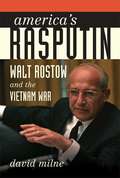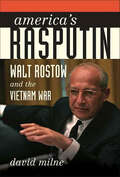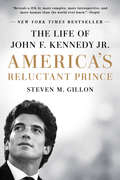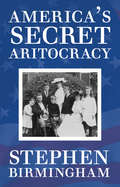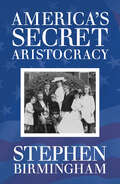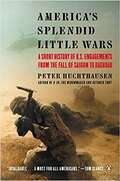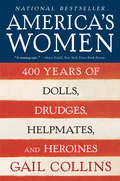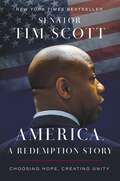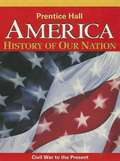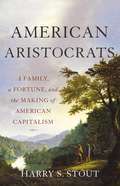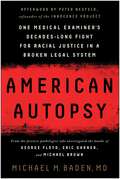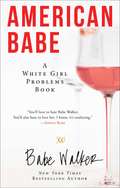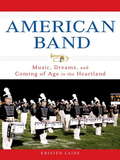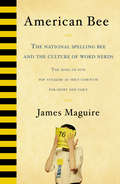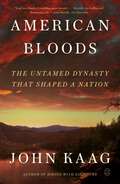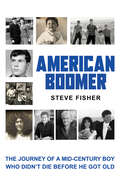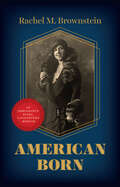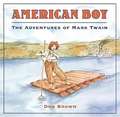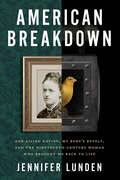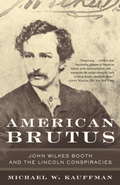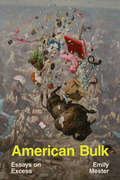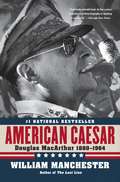- Table View
- List View
America's Rasputin: Walt Rostow and the Vietnam War
by David MilneWalt Rostow's meteoric rise to power -- from Flatbush, Brooklyn, to the West Wing of the White House -- seemed to capture the promise of the American dream. Hailing from humble origins, Rostow became an intellectual powerhouse: a professor of economic history at MIT and an influential foreign policy adviser to John F. Kennedy and Lyndon B. Johnson. Too influential, according to some. While Rostow inspired respect and affection, he also made some powerful enemies. Averell Harriman, one of America's most celebrated diplomats, described Rostow as "America's Rasputin" for the unsavory influence he exerted on presidential decision-making. Rostow was the first to advise Kennedy to send U.S. combat troops to South Vietnam and the first to recommend the bombing of North Vietnam. He framed a policy of military escalation, championed recklessly optimistic reporting, and then advised LBJ against pursuing a compromise peace with North Vietnam. David Milne examines one man's impact on the United States' worst-ever military defeat. It is a portrait of good intentions and fatal misjudgments. A true ideologue, Rostow believed that it is beholden upon the United States to democratize other nations and do "good," no matter what the cost. America's Rasputin explores the consequences of this idealistic but unyielding dogma.
America's Rasputin: Walt Rostow and the Vietnam War
by David MilneDavid Milne's America's Rasputin provides the first major study of the man who pushed two presidents into Vietnam.Walt Rostow's meteoric rise to power—from Flatbush, Brooklyn, to the West Wing of the White House—seemed to capture the promise of the American dream. Hailing from humble origins, Rostow became an intellectual powerhouse: a professor of economic history at MIT and an influential foreign policy adviser to John F. Kennedy and Lyndon B. Johnson. Too influential, according to some. While Rostow inspired respect and affection, he also made some powerful enemies. Averell Harriman, one of America's most celebrated diplomats, described Rostow as "America's Rasputin" for the unsavory influence he exerted on presidential decision-making. Rostow was the first to advise Kennedy to send U.S. combat troops to South Vietnam and the first to recommend the bombing of North Vietnam. He framed a policy of military escalation, championed recklessly optimistic reporting, and then advised LBJ against pursuing a compromise peace with North Vietnam. David Milne examines one man's impact on the United States' worst-ever military defeat. It is a portrait of good intentions and fatal misjudgments. A true ideologue, Rostow believed that it is beholden upon the United States to democratize other nations and do "good," no matter what the cost. America's Rasputin explores the consequences of this idealistic but unyielding dogma.
America's Reluctant Prince: The Life of John F. Kennedy Jr.
by Steven M. Gillon*A New York Times Bestseller*A major new biography of John F. Kennedy Jr. from a leading historian who was also a close friend, America&’s Reluctant Prince is a deeply researched, personal, surprising, and revealing portrait of the Kennedy heir the world lost too soon. Through the lens of their decades-long friendship and including exclusive interviews and details from previously classified documents, noted historian and New York Times bestselling author Steven M. Gillon examines John F. Kennedy Jr.&’s life and legacy from before his birth to the day he died. Gillon covers the highs, the lows, and the surprising incidents, viewpoints, and relationships that John never discussed publicly, revealing the full story behind JFK Jr.&’s complicated and rich life. In the end, Gillon proves that John&’s life was far more than another tragedy—rather, it&’s the true key to understanding both the Kennedy legacy and how America&’s first family continues to shape the world we live in today.
America's Secret Aristocracy
by Stephen BirminghamAmerica's Secret Aristocracy is a report from inside the shush-shush inner circle of America's upper crust. Full of eccentric family members and well-sourced gossip, bestselling writer Stephen Birmingham spins an entertaining social history.
America's Secret Aristocracy: The Families that Built the United States
by Stephen BirminghamAn &“entertaining and perceptive&” history of America&’s most exclusive families, from the Brahmins of New England to the Grandees of California (The Washington Post). America has always been a constitutionally classless society, yet an American aristocracy emerged anyway—a private club whose members run in the same circles and observe the same unwritten rules. Here, renowned social historian Stephen Birmingham reveals the inner workings of this aristocracy. He identifies which families in which cities have always mattered, and how they&’ve defined America.America&’s Secret Aristocracy offers an inside look at the estates, marriages, and financial empires of America&’s most powerful families—from the Randolphs of Virginia and the Roosevelts of New York to the Carillos and Ortegas of California. With countless anecdotes about our nation&’s elite, including interviews with their modern-day descendants, Birmingham presents colorful portraits that capture the true definition, essence, and customs of America&’s aristocracy.
America's Splendid Little Wars: A Short History Of U. S. Engagements From The Fall Of Saigon to Baghdad
by Peter HuchthausenFrom the evacuation of Saigon in 1975 to the end of the twentieth century, the United States committed its forces to more than a dozen military operations. Offering a fresh analysis of the Iranian hostage rescue attempt, the invasions of Granada and Panama, the first Gulf War, the missions in Somalia and Bosnia, and more, author and distinguished U.S. naval captain Peter Huchthausen presents a detailed history of each military engagement through eyewitness accounts, exhaustive research, and his unique insider perspective as an intelligence expert. This timely and riveting military history is “a must-read for anyone seeking to understand the nature of war today” (Stephen Trent Smith).
America's Women
by Gail CollinsAmerica's Women tells the story of more than four centuries of history. It features a stunning array of personalities, from the women peering worriedly over the side of the Mayflower to feminists having a grand old time protesting beauty pageants and bridal fairs. Courageous, silly, funny, and heartbreaking, these women shaped the nation and our vision of what it means to be female in America. <P><P>By culling the most fascinating characters -- the average as well as the celebrated -- Gail Collins, the editorial page editor at the New York Times, charts a journey that shows how women lived, what they cared about, and how they felt about marriage, sex, and work. She begins with the lost colony of Roanoke and the early southern "tobacco brides" who came looking for a husband and sometimes -- thanks to the stupendously high mortality rate -- wound up marrying their way through three or four. Spanning wars, the pioneering days, the fight for suffrage, the Depression, the era of Rosie the Riveter, the civil rights movement, and the feminist rebellion of the 1970s, America's Women describes the way women's lives were altered by dress fashions, medical advances, rules of hygiene, social theories about sex and courtship, and the ever-changing attitudes toward education, work, and politics. While keeping her eye on the big picture, Collins still notes that corsets and uncomfortable shoes mattered a lot, too. <P><P>"The history of American women is about the fight for freedom," Collins writes in her introduction, "but it's less a war against oppressive men than a struggle to straighten out the perpetually mixed message about women's roles that was accepted by almost everybody of both genders." <P><P>Told chronologically through the compelling stories of individual lives that, linked together, provide a complete picture of the American woman's experience, America's Women is both a great read and a landmark work of history.
America, a Redemption Story: Choosing Hope, Creating Unity
by Senator Tim ScottThe American Dream isn&’t a thing of the past, but a miracle of the present.Now more than ever it&’s easy to focus on the divisions that plague our nation. It may seem as if our best days are behind us, but bestselling author and senator Tim Scott believes we have yet to realize the fullness of our identity. We are in the midst of a story that&’s still unfolding. And beautiful opportunities await.In this powerful memoir, Scott recounts formative events of his life alongside the inspiring stories of other Americans who have risen above hardship and embodied the values that make our nation great. Together these personal and inspirational accounts call readers to embracethe mountaintops as well as the valleys on the journey to a more perfect union;a path marked by optimism, hope, and resolve; anda future characterized by endurance, unity, and strength.Both a clear-eyed reckoning with our nation&’s failures and an ode to its accomplishments, America, a Redemption Story issues a clarion call for all of us to rise courageously to the greatness within our reach.
America: History of Our Nation, Civil War to the Present
by Michael B. Stoff James West DavidsonIf someone were to tell you "History happens every day," how would you respond? You might be tempted to say: "History is only in the past. Old places, lost kingdoms, faraway lands ... stuff like that." But events happening around the world right now will be history some day. Small events may only be part of your own personal history. Larger events may change the course of history in your community, your nation, or the world. The news of these events comes from everywhere, right? It's on television, it's online, it's in newspapers, it's on the radio; it even comes by word of mouth. You are bombarded from every direction. How you choose to use that information is up to you. You can ignore it, or you could recognize that it is changing the world you live in. Many successful people are those who not only know what is happening around them, but who can also see the possible consequences.
American Aristocrats: A Family, a Fortune, and the Making of American Capitalism
by Harry S. StoutThe story of an ambitious family at the forefront of the great middle-class land grab that shaped early American capitalismAmerican Aristocrats is a multigenerational biography of the Andersons of Kentucky, a family of strivers who passionately believed in the promise of America. Beginning in 1773 with the family patriarch, a twice-wounded Revolutionary War hero, the Andersons amassed land throughout what was then the American west. As the eminent religious historian Harry S. Stout argues, the story of the Andersons is the story of America's experiment in republican capitalism. Congressmen, diplomats, and military generals, the Andersons enthusiastically embraced the emerging American gospel of land speculation. In the process, they became apologists for slavery and Indian removal, and worried anxiously that the volatility of the market might lead them to ruin.Drawing on a vast store of Anderson family records, Stout reconstructs their journey to great wealth as they rode out the cataclysms of their time, from financial panics to the Civil War and beyond. Through the Andersons we see how the lure of wealth shaped American capitalism and the nation's continental aspirations.
American Autobiography after 9/11
by Megan BrownIn the wake of the 2001 terrorist attacks in the United States, American memoirists have wrestled with a wide range of anxieties in their books. They cope with financial crises, encounter difference, or confront norms of identity. Megan Brown contends that such best sellers as Cheryl Strayed’s Wild, Elizabeth Gilbert’s Eat, Pray, Love, and Tucker Max’s I Hope They Serve Beer in Hell teach readers how to navigate a confusing, changing world. This lively and theoretically grounded book analyzes twenty-first-century memoirs from Three Cups of Tea to Fun Home, emphasizing the ways in which they reinforce and circulate ideologies, becoming guides or models for living. Brown expands her inquiry beyond books to the autobiographical narratives in reality television and political speeches. She offers a persuasive explanation for the memoir boom: the genre as a response to an era of uncertainty and struggle.
American Autopsy: One Medical Examiner's Decades-Long Fight for Racial Justice in a Broken Legal System
by Michael M. BadenA revealing history of covering up the true causes of deaths of BIPOC in custody—from the forensic pathologist whose work changed the course of the George Floyd, Eric Garner, and Michael Brown cases Dr. Michael Baden has been involved in some of the most high-profile civil rights and police brutality cases in US history, from the government&’s 1976 re-investigation of the assassination of Martin Luther King, Jr., to the 2014 death of Michael Brown, whose case sparked the initial Ferguson protests that grew into the Black Lives Matter movement. The playbook hasn&’t changed since 1979, when Dr. Baden was demoted from his job as New York City&’s Chief Medical Examiner after ruling that the death of a Black man in police custody was a homicide. So in 2020 when the Floyd family, wary of the same system that oversaw George Floyd&’s death, needed a second opinion—Dr. Baden is who they called. In these pages, Dr. Baden chronicles his six decades on the front lines of the fight for accountability within the legal system—including the long history of medical examiners of using a controversial syndrome called excited delirium (a term that shows up in the pathology report for George Floyd) to explain away the deaths of BIPOC restrained by police. In the process, he brings to life the political issues that go on in the wake of often unrecorded fatal police encounters and the standoff between law enforcement and those they are sworn to protect. Full of behind-the-scenes drama and surprising revelations, American Autopsy is an invigorating—and enraging—read that is both timely and crucial for this turning point in our nation&’s history.
American Babe: A White Girl Problems Book
by Babe WalkerAuthor of the New York Times bestseller White Girl Problems and Psychos, Babe Walker, faces her most daunting challenge yet--suburbia--in the third caustically witty White Girl Problems book.Babe Walker thought she had done it all. After all, she's survived the highly exclusive social hierarchies of Bel Air, traipsed around Europe in true white-girl fashion, and left her mark on several of the best rehab facilities in the United States. But now Babe is about to enter a terrifying new world: Middle America. After a freak accident that was definitely not Babe's fault, her estranged mother offers her the perfect escape from LA: an invite to her grandfather's eightieth birthday party in Maryland, of all places. Babe's journey throws her headlong into elementary school classrooms full of small, unfashionable people and pizza buffet restaurants that will haunt her nightmares and eventually back to Los Angeles, thank goodness. Tossed together with her cousins--basic preteen Cara and mature and preternaturally stylish Knox--Babe learns that connecting with someone on an intimate, familial level might be the most rewarding experience there is... Besides being thin, of course. Hysterical, unapologetic, and as unfiltered as ever, Babe Walker proves again to be the "urban socialite you love to hate" (Time), and she can only hope the population is ready for American Babe.
American Band
by Kristen LaineIn the spirit of Friday Night Lights comes the stirring story of a marching band from small-town middle America. Every fall, marching bands take to the field in a uniquely American ritual. For millions of kids, band is a rite of passage-a first foray into leadership and adult responsibility, and a chance to learn what it means to be a part of a community. Nowhere is band more serious than at Concord High School in Elkhart, Indiana, where the entire town is involved with the success of its defending state champion band, the Marching Minutemen. In the place where this tradition may have originated, in the city that became the band instrument capital of the world, band is a religion. But it's not the only religion-as legendary director Max Jones discovers when conflicting notions of faith and purpose collide during his final year as director. In this intimate chronicle, the band marches through a season that starts in hope and promise, progresses through uncertainty and disappointment, and ends, ultimately, in redemption.
American Bee: The National Spelling Bee and the Culture of Word Nerds
by James MaguireWhat the bestselling Word Freak did for Scrabble, this riveting narrative now does for the National Spelling Bee. Here is a captivating slice of Americana--part sporting event, part absorbing human drama, and part celebration of the magic of words. Every spring in the nation's capital, after a starting pool of 10 million kids narrows to 250 finalists, America's top young spellers face off in a nail-biting contest. So electric is the drama that millions of viewers tune in to watch ESPN's live telecastBut this national obsession is much more than a sporting story--and this first-ever narrative nonfiction book about the National Spelling Bee immerses the reader in unique subculture, portraying the endearing fraternity of brilliant, eccentric young word nerds who vie for a gold trophy, a hefty check, and a glorious moment of national fame.Author James Maguire, who like the contestants is an inveterate word nut, captures the agony and glory of this singularly American event. He profiles the top five spellers across the country, exploring their hopes and dreams-and strategies for winning--as they prepare for their moment in the spotlight. American Bee takes readers behind the scenes at the National Bee, providing a narrative thrill ride as the tension mounts round by round.
American Bloods: The Untamed Dynasty That Shaped a Nation
by John Kaag"American Bloods is an unflinching history of our nation . . . This is a breakout book for John Kaag—the natural extension of his genre-defining writing.” —Doris Kearns Goodwin, Pulitzer Prize–winning author of Leadership: In Turbulent Times"Kaag has a knack of stumbling upon treasures . . . The result is a thrilling and illuminating tale." —John Banville, The New StatesmanA history of a family spanning centuries and continents—one that unfolds into a new portrait of America.The Bloods were one of America’s first and most expansive pioneer families. They explored and laid claim to the frontiers—geographic, political, intellectual, and spiritual—that would become the very core of the United States. John Kaag’s American Bloods is the account of a remarkable American family, of its participation in the making of a nation, and of how its members embodied the elusive ideals enshrined in the Declaration of Independence. Inspired by the discovery of a mysterious manuscript in an old Massachusetts farmhouse, Kaag follows eight members of this family from the British Civil Wars in the seventeenth century through the founding of the colonies, the American Revolution, transcendentalism, the Industrial Revolution, the Civil War, and the rise of first-wave feminism, all the way to the beginning of the twentieth century.The Bloods were active participants in virtually every pivotal moment in American history, coming into contact with everyone from Emerson and Thoreau to John Brown, Frederick Douglass, Victoria Woodhull, and William James. The genealogy of the family tracks the ebb and flow of what Thoreau called “wildness,” an original untamed spirit that would recede in the making of America but would never be extinguished entirely. American Bloods is an enduring reminder of the risks and rewards that were taken in laying claim to the lands that would become the United States, and a composite portrait of America like no other.
American Boomer
by Steve FisherOK, Boomer… this is the book you&’ve been waiting for! A memoir by one of your own, about your time and tribulations, which will take you down memory lane and may even remind you of yourself as a child of the Greatest Generation.As a front-line baby boomer, Steve Fisher was a youngster in the 1950s and came of age in the turbulent 1960s. Never one to stay within the proscribed parameters and never too big on rules, he followed his own path and made choices that were, unfortunately, often to his own detriment. American Boomer traces the highs and lows of his exceptional journey, including his time as a musician, a radio disc-jockey, and ultimately, a writer. Funny and poignant, uplifting and heart-breaking, American Boomer is a hard and honest look at a son of the Greatest Generation who didn&’t die before he got old.If you&’re a baby boomer, much of the vernacular in this book will be familiar to you. If you&’re a younger reader… that&’s why there&’s Google.
American Born: An Immigrant's Story, a Daughter's Memoir (Emersion: Emergent Village Resources For Communities Of Faith Ser.)
by Rachel M. BrownsteinAn incisive memoir of Rachel M. Brownstein’s seemingly quintessential Jewish mother, a resilient and courageous immigrant in New York. When she arrived alone in New York in 1924, eighteen-year-old Reisel Thaler resembled the other Yiddish-speaking immigrants from Eastern Europe who accompanied her. Yet she already had an American passport tucked in her scant luggage. Reisel had drawn her first breath on the Lower East Side of Manhattan in 1905, then was taken back to Galicia (in what is now Poland) by her father before she turned two. She was, as she would boast to the end of her days, “American born.” The distinguished biographer and critic Rachel M. Brownstein began writing about her mother Reisel during the Trump years, dwelling on the tales she told about her life and the questions they raised about nationalism, immigration, and storytelling. For most of the twentieth century, Brownstein’s mother gracefully balanced her identities as an American and a Jew. Her values, her language, and her sense of timing inform the imagination of the daughter who recalls her in her own old age. The memorializing daughter interrupts, interprets, and glosses, sifting through alternate versions of the same stories using scenes, songs, and books from their time together. But the central character of this book is Reisel, who eventually becomes Grandma Rose—always watching and judging, singing, baking, and bustling. Living life as the heroine of her own story, she reminds us how to laugh despite tragedy, find our courage, and be our most unapologetically authentic selves.
American Boy
by Don BrownOur popular image of Mark Twain is of a gruV, gray-haired eccentric, the outspoken literary giant who created enduring novels such as The Adventures of Tom Sawyer and The Adventures of Huckleberry Finn. But once upon a time, Mark Twain was a boy named Samuel Clemens. His birth on November 30, 1835, coincided with the appearance of Halley’s comet streaking across the sky. A dreamer, a prankster, a lover of great tales, Sam Clemens spent his boyhood years "in high feather,” living out adventures along the banks of the mighty Mississippi River. His beloved river would eventually carry Mark Twain far beyond Hannibal, Missouri, but he would return to the freedom, innocence, and vitality of his youth again and again in his writing. In glowing watercolors and spirited text, Don Brown reveals the glad morning of Twain’s life, now the classic American boyhood, and the forces that inspired his funny, irreverent, insightful, and groundbreaking works of fiction.
American Breakdown: Our Ailing Nation, My Body's Revolt, and the Nineteenth-Century Woman Who Brought Me Back to Life
by Jennifer LundenA Silent Spring for the human body, this wide-ranging, genre-crossing literary mystery interweaves the author’s quest to understand the source of her own condition with her telling of the story of the chronically ill 19th-century diarist Alice James—ultimately uncovering the many hidden health hazards of life in America.When Jennifer Lunden became chronically ill after moving from Canada to Maine, her case was a medical mystery. Just 21, unable to hold a book or stand for a shower, she lost her job and consigned herself to her bed. The doctor she went to for help told her she was “just depressed.”After suffering from this enigmatic illness for five years, she discovered an unlikely source of hope and healing: a biography of Alice James, the bright, witty, and often bedridden sibling of brothers Henry James, the novelist, and William James, the father of psychology. Alice suffered from a life-shattering illness known as neurasthenia, now often dismissed as a “fashionable illness.”In this meticulously researched and illuminating debut, Lunden interweaves her own experience with Alice’s, exploring the history of medicine and the effects of the industrial revolution and late-stage capitalism to tell a riveting story of how we are a nation struggling—and failing—to be healthy.Although science—and the politics behind its funding—has in many ways let Lunden and millions like her down, in the end science offers a revelation that will change how readers think about the ecosystems of their bodies, their communities, the country, and the planet.
American Brutus
by Michael W. KauffmanIt is a tale as familiar as our history primers: A deranged actor, John Wilkes Booth, killed Abraham Lincoln in Ford's Theatre, escaped on foot, and eluded capture for twelve days until he met his fiery end in a Virginia tobacco barn. In the national hysteria that followed, eight others were arrested and tried; four of those were executed, four imprisoned. Therein lie all the classic elements of a great thriller. But the untold tale is even more fascinating.Now, in American Brutus, Michael W. Kauffman, one of the foremost Lincoln assassination authorities, takes familiar history to a deeper level, offering an unprecedented, authoritative account of the Lincoln murder conspiracy. Working from a staggering array of archival sources and new research, Kauffman sheds new light on the background and motives of John Wilkes Booth, the mechanics of his plot to topple the Union government, and the trials and fates of the conspirators.Piece by piece, Kauffman explains and corrects common misperceptions and analyzes the political motivation behind Booth's plan to unseat Lincoln, in whom the assassin saw a treacherous autocrat, "an American Caesar." In preparing his study, Kauffman spared no effort getting at the truth: He even lived in Booth's house, and re-created key parts of Booth's escape. Thanks to Kauffman's discoveries, readers will have a new understanding of this defining event in our nation's history, and they will come to see how public sentiment about Booth at the time of the assassination and ever since has made an accurate account of his actions and motives next to impossible-until now.In nearly 140 years there has been an overwhelming body of literature on the Lincoln assassination, much of it incomplete and oftentimes contradictory. In American Brutus, Kauffman finally makes sense of an incident whose causes and effects reverberate to this day. Provocative, absorbing, utterly cogent, at times controversial, this will become the definitive text on a watershed event in American history.From the Hardcover edition.
American Brutus
by Michael W. KauffmanIt is a tale as familiar as our history primers: A deranged actor, John Wilkes Booth, killed Abraham Lincoln in Ford's Theatre, escaped on foot, and eluded capture for twelve days until he met his fiery end in a Virginia tobacco barn. In the national hysteria that followed, eight others were arrested and tried; four of those were executed, four imprisoned. Therein lie all the classic elements of a great thriller. But the untold tale is even more fascinating.Now, in American Brutus, Michael W. Kauffman, one of the foremost Lincoln assassination authorities, takes familiar history to a deeper level, offering an unprecedented, authoritative account of the Lincoln murder conspiracy. Working from a staggering array of archival sources and new research, Kauffman sheds new light on the background and motives of John Wilkes Booth, the mechanics of his plot to topple the Union government, and the trials and fates of the conspirators.Piece by piece, Kauffman explains and corrects common misperceptions and analyzes the political motivation behind Booth's plan to unseat Lincoln, in whom the assassin saw a treacherous autocrat, "an American Caesar." In preparing his study, Kauffman spared no effort getting at the truth: He even lived in Booth's house, and re-created key parts of Booth's escape. Thanks to Kauffman's discoveries, readers will have a new understanding of this defining event in our nation's history, and they will come to see how public sentiment about Booth at the time of the assassination and ever since has made an accurate account of his actions and motives next to impossible-until now.In nearly 140 years there has been an overwhelming body of literature on the Lincoln assassination, much of it incomplete and oftentimes contradictory. In American Brutus, Kauffman finally makes sense of an incident whose causes and effects reverberate to this day. Provocative, absorbing, utterly cogent, at times controversial, this will become the definitive text on a watershed event in American history.From the Hardcover edition.
American Brutus: John Wilkes Booth and the Lincoln Conspiracies
by Michael W. KauffmanIt is a tale as familiar as our history primers: A deranged actor, John Wilkes Booth, killed Abraham Lincoln in Ford's Theatre, escaped on foot, and eluded capture for twelve days until he met his fiery end in a Virginia tobacco barn. In the national hysteria that followed, eight others were arrested and tried; four of those were executed, four imprisoned. Therein lie all the classic elements of a great thriller. But the untold tale is even more fascinating. Now, in American Brutus, Michael W. Kauffman, one of the foremost Lincoln assassination authorities, takes familiar history to a deeper level, offering an unprecedented, authoritative account of the Lincoln murder conspiracy. Working from a staggering array of archival sources and new research, Kauffman sheds new light on the background and motives of John Wilkes Booth, the mechanics of his plot to topple the Union government, and the trials and fates of the conspirators. Piece by piece, Kauffman explains and corrects common misperceptions and analyzes the political motivation behind Booth's plan to unseat Lincoln, in whom the assassin saw a treacherous autocrat, "an American Caesar. " In preparing his study, Kauffman spared no effort getting at the truth: He even lived in Booth's house, and re-created key parts of Booth's escape. Thanks to Kauffman's discoveries, readers will have a new understanding of this defining event in our nation's history, and they will come to see how public sentiment about Booth at the time of the assassination and ever since has made an accurate account of his actions and motives next to impossible-until now. In nearly 140 years there has been an overwhelming body of literature on the Lincoln assassination, much of it incomplete and oftentimes contradictory. In American Brutus, Kauffman finally makes sense of an incident whose causes and effects reverberate to this day. Provocative, absorbing, utterly cogent, at times controversial, this will become the definitive text on a watershed event in American history. From the Hardcover edition.
American Bulk: Essays on Excess
by Emily MesterRaised with hoarding and compulsive shopping, Emily Mester is caught in between. What happens when consumption begins to consume you back? In a series of deeply personal essays, Mester explores how the things we buy, eat, amass, and discard become an intimate part of our lives. We guiltily watch Amazon boxes pile up on the porch, wade through endless reviews to find the perfect product, and crave the comforting indulgence of a chain restaurant. With humor and sharp intellect, Mester reflects on the joys and anxieties of Costco trips, how a seasonal stint at Ulta Beauty taught her the insidious art of the sale, and what it means to get “mall sad.” In a nuanced examination of diet culture and fatness, Mester recounts her teenage summer at fat camp and the unexpected liberation she finds there. Finally, she ventures to Storm Lake, Iowa, to reckon with her grandmother’s abandoned hoard, excavating the dysfunction that lies at the heart of her family’s obsession with stuff. American Bulk introduces readers to a striking new literary talent from the American heartland, one who dares to ask us to regard consumption not with guilt but with grace and empathy.
American Caesar: Douglas MacArthur 1880 - 1964
by William ManchesterInspiring, outrageous... A thundering paradox of a man. Douglas MacArthur, one of only five men in history to have achieved the rank of General of the United States Army. He served in World Wars I, II, and the Korean War, and is famous for stating that "in war, there is no substitute for victory." AMERICAN CAESAR exaines the exemplary army career, the stunning successes (and lapses) on the battlefield, and the turbulent private life of the soldier-hero whose mystery and appeal created a uniquely American legend.
